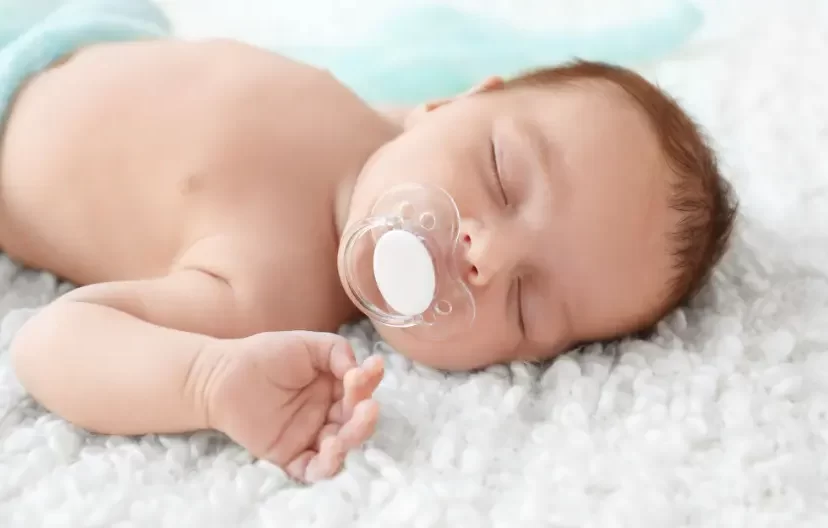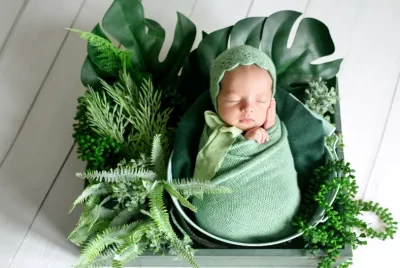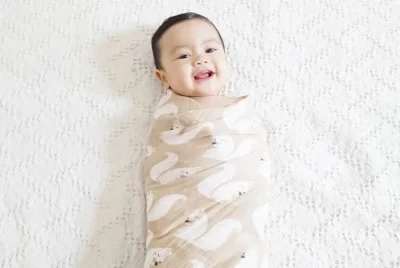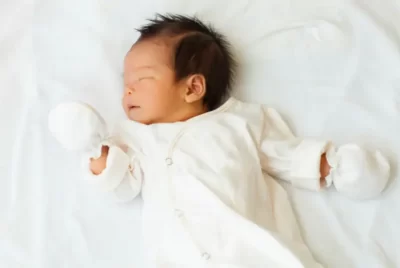Is It Safe For a Baby To Sleep With a Pacifier?
We may earn a small commission for purchases made using our links (not affecting your price).
See our disclosure to learn more.
Some parents are unsure if it is safe for a baby to sleep with a pacifier. In some cases, a baby can begin sleeping with a mouthpiece. Is It Safe For a Baby To Sleep With a Pacifier? Breastfed babies should not use pacifiers until at least three to four weeks after birth. They must have established a feeding routine and be free of any problems. Pacifiers can be used by babies to get them to sleep. Placing a pacifier in your child’s mouth can reduce the risk of SIDS (Sudden Infant Death Syndrome). Pacifiers can also be used to help babies fall asleep before bedtime. It is helpful for sleep-training newborn babies.
As a mom, I often wonder, “Is my baby sleeping enough?” It’s something many parents think. Getting their babies to sleep can be difficult for parents, particularly at night. Wearing a pacifier is also effective in promoting sleep. You may be worried about the safety of a child sleeping with a mouth pacifier and wonder if any measures are needed.
Is It Safe For a Baby To Sleep With a Pacifier?
Babies can safely sleep with pacifiers. American Academy of Pediatrics recommends that infants use pacifiers during naptime and bedtime. If you are nursing your child, wait three weeks before giving them a pacifier. You should know some safety precautions if your child uses a pacifier to sleep.
- Attach the pacifier to your child’s clothing or bedding with no knot or clip.
- Only use pacifiers that have one piece.
- Do not use pacifiers attached to plush toys, blankets, beads, or ribbons.
- There should be airholes in the pacifier shield that cover the part of the pacifier that rests against your child’s lips.
- As your child grows, buy bigger pacifiers. The entire pacifier won’t fit.
Not all babies need to use pacifiers at night. It may be that your baby does not want to use a pacifier, or you may need to experiment with binkies before finding one they enjoy. According to BabyCenter’s editors and parents, here are some of the top pacifiers. Offer a pacifier occasionally if your child is not a fan, but don’t force him to use one.
Benefits of Sleeping with a Pacifier
The use of a pacifier to help your child sleep has many benefits.
- This helps with baby sleep training.
- A pacifier will help your child if they constantly fight you during nap time.
- Pacifiers support the need to suck and encourage relaxation.
- A baby can safely sleep with their pacifier still in the mouth.
When Should You Stop Using a Pacifier for Sleep with Your Baby?
While different doctors may have varying opinions on the best time to stop a child from using a pacifier between 6 months and four years, they all agree that it is important for parents to discontinue pacifier use during this period. Different Pediatric dentists advise parents to discontinue using pacifiers after their child reaches age three to avoid tooth issues. Reduce pacifier use between 6-12 months to avoid middle ear infection. Experts advise parents to avoid pacifier use until a child is at least 14 months of age. Parents should consider the benefits of using a pacifier before deciding to stop. Experts have different recommendations for the age at which pacifiers should be removed.
After six months of age, pacifiers are primarily used for the comfort that they provide. You can provide suitable alternatives to reduce your child’s anxiety when they transition from the pacifier.
Can you use a pacifier when sleep-training your child?
There are several ways to be safe for a baby to sleep with a pacifier as you work on establishing a new sleep routine. When used correctly, pacifiers can be an excellent addition to your bedtime routine regardless of your sleep training techniques. Giving your child a Paci can help him feel more at ease when it is time to go to bed.
Are Pacifiers Made for All Sleep Times?
While sleeping, it’s hard for parents to keep an eye on their babies. You can use your child’s sleeping time to relax, read a book or bathe. You can help your child sleep peacefully and restfully by using pacifiers designed for nighttime use. Do not be alarmed or shocked if your child’s mouth opens up after they fall asleep. It happens often, as your child can move around or shift while asleep. You can also buy glow-in-the-dark pacifiers to help you and your child find it quickly if they accidentally lose it while sleeping.
FAQS
When the baby is napping, should I take the pacifier out?
Even after your infant sleeps, you can still use the pacifier. You may even find that they have lost their pacifier during the night.
Can a 4 to 6-day-old baby sleep with a pacifier?
Many factors can influence a baby’s decision to use a pacifier. When introducing pacifiers, the main thing you should remember is how your child will be fed. If you decide to breastfeed your child, waiting for latching to become reliable before using a pacifier to sleep may be best. You can use a pacifier sooner than you think if your baby is bottle-fed.
Conclusion
It is safe for a baby to sleep with a pacifier under certain circumstances. Using a pacifier while sleeping can reduce the risk of Sudden Infant Death Syndrome (SIDS) and aid in sleep training for newborns. However, following some safety measures when allowing a baby to sleep with a pacifier is important, such as avoiding attachments or loose items. There are several benefits to having a baby sleep with a pacifier, including assisting in sleep training and promoting relaxation through the natural sucking reflex.
The decision to use a pacifier for sleep should be based on the individual baby’s needs and preferences. Some babies may not like pacifiers, and it may require trial and error to find the right one. Parents should assess their baby’s sleep habits and consult healthcare professionals if they have concerns or questions about pacifier usage.




